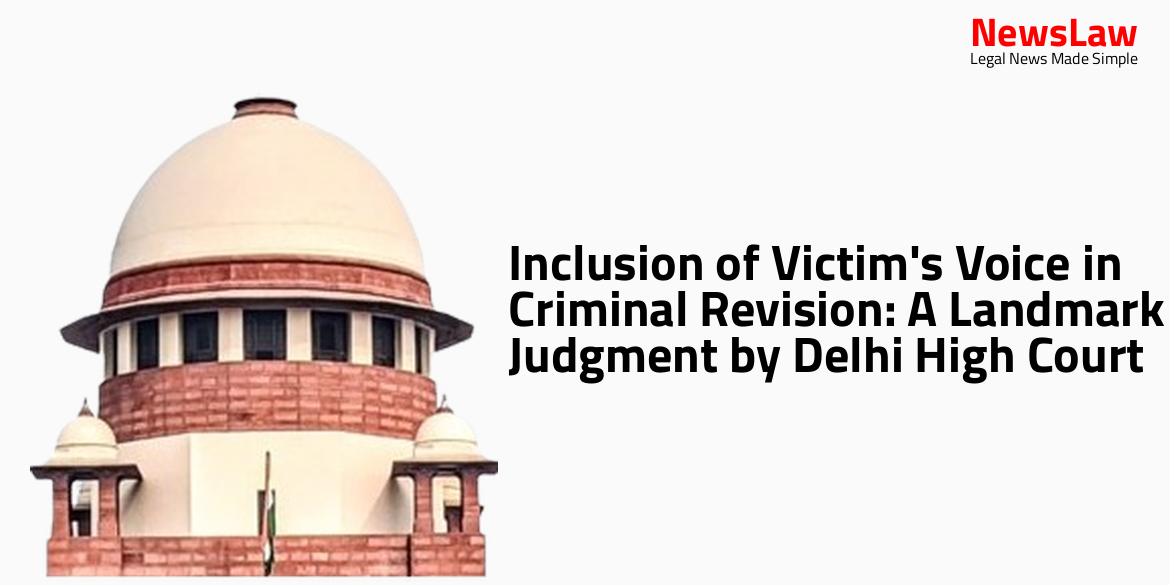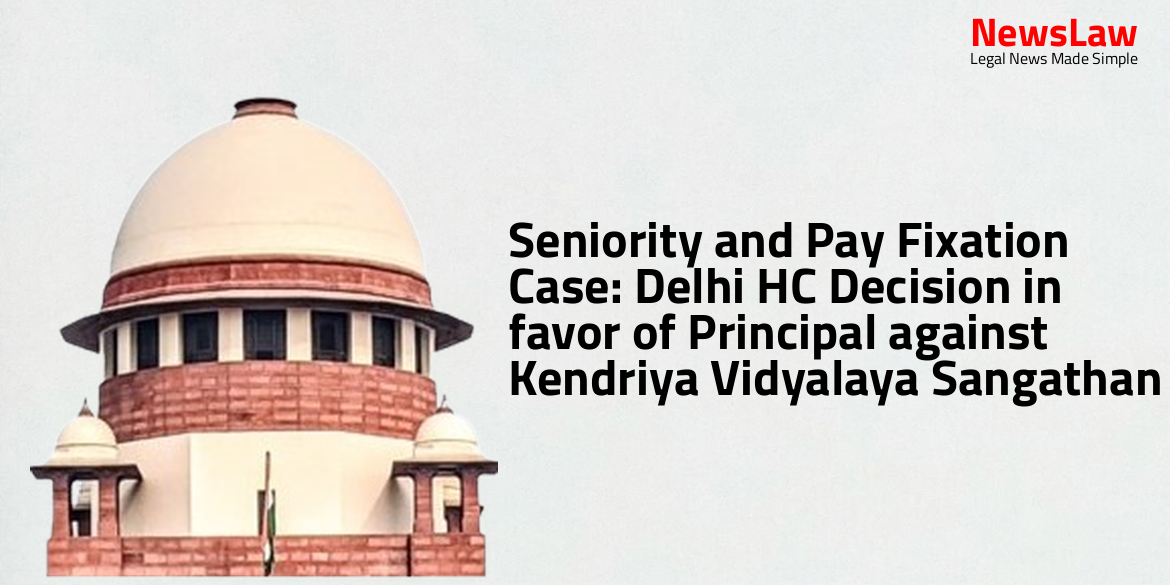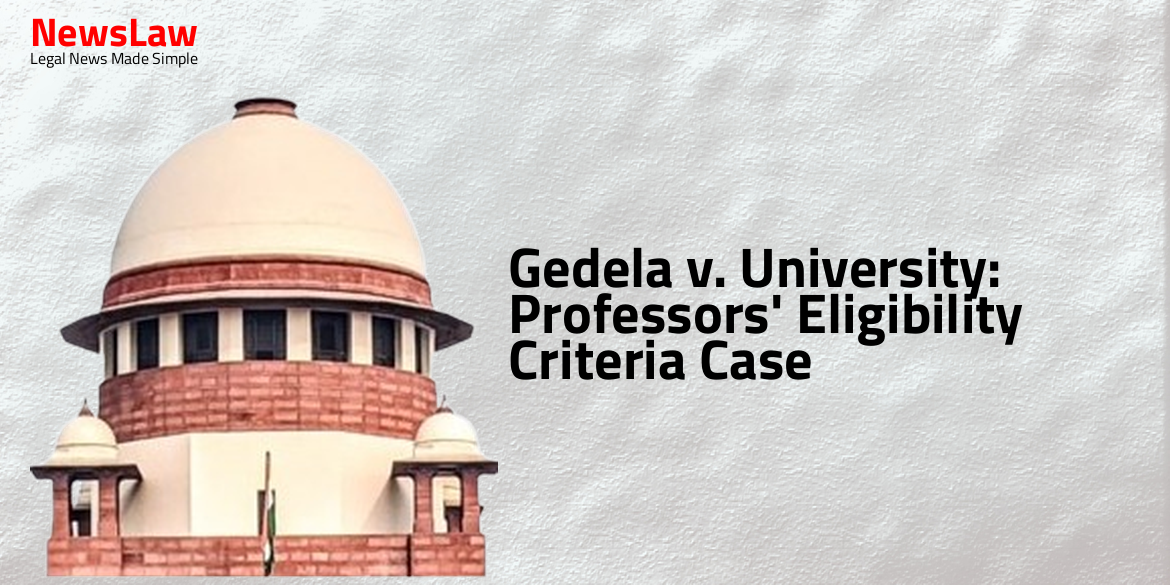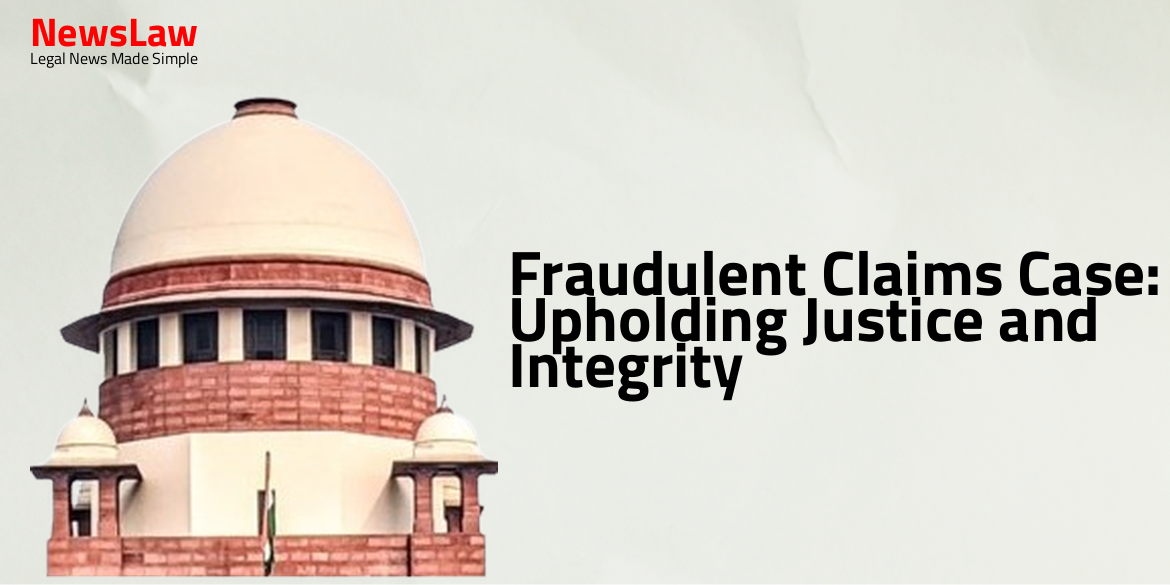The recent judgment by Delhi High Court has redefined the scope of victim engagement in criminal revision cases, underscoring the significance of their representation. This pivotal decision highlights the need for inclusivity and fairness in legal proceedings, setting a precedent for future cases. The ruling addresses the importance of empowering victims, ensuring justice is served equitably for all parties involved.
Facts
- The petitioner company was allegedly deceived by the accused persons into believing they could secure a large amount of money for a hotel project.
- Accused persons assured the petitioner that their investment was safe as majority equity would be infused by them and their associates.
- Accused induced the petitioner to issue a cheque for Rs. 70 lacs based on false representations about project financing.
- Charges have been framed against the accused in multiple FIRs, alleging forgery and fraud in property transactions.
- The accused created false documents to deceive the petitioner into financing the project with Rs. 7 crores.
- A total of three FIRs were registered against the accused based on complaints by the petitioner.
- Charges have been framed under various sections of the IPC against the accused in the ongoing legal proceedings.
Issue
- The issue to be decided by this Court is the extent of involvement granted to the victim/complainant in a revision petition filed by the accused seeking discharge.
- The question is whether the victim/complainant can seek impleadment as a matter of right, only has the right to be heard, or only has the right to assist the Public Prosecutor.
- This decision will determine the level of participation and representation granted to the victim/complainant in such legal proceedings.
Arguments
- The petitioner, being the complainant/victim, asserts a legally vested right to be heard at every stage of the criminal proceedings, from investigation to appeal or revision.
- The petitioner argues that previous judgments holding a contrary view to the Supreme Court’s decision in Jagjeet Singh (supra) are impliedly overruled.
- The petitioner contends that the victim/complainant has the right to participate and be heard in a Revision Petition, including being impleaded and independently presenting arguments.
- The role of a Public Prosecutor is highlighted, with the petitioner asserting the right to assist the Court through the learned Public Prosecutor.
- The petitioner stresses the importance of being impleaded and heard in the criminal revision proceedings pending before the learned ASJ, emphasizing the limitations faced by Public Prosecutors.
- Various precedents of the Supreme Court, Delhi High Court, and other High Courts are cited in support of the petitioner’s stance on participation in criminal revision petitions.
- The petitioner challenges the judgment of the learned ASJ, citing errors in reliance on previous judgments that are now overruled by the Supreme Court’s decision in Jagjeet Singh (supra).
- The petitioner argues against a narrow interpretation of the law that would exclude the complainant/victim from being impleaded and heard in criminal revision proceedings.
- The petitioner insists on the right to intervene in the criminal revision process, highlighting the duty of the Courts to ensure justice for all parties involved in criminal cases.
- The petitioner’s position is supported by various legal observations and judgments, emphasizing the need for the victim/complainant to have a voice in the revision process.
- The judgment of the Supreme Court in Jagjeet Singh is the crux of the petitioner’s case.
- The said judgment is deemed irrelevant to the current case according to the respondent.
- In Jagjeet Singh case, the Supreme Court only addressed the right of the victim to be heard in bail matters, not the status of the complainant.
- The distinction between ‘complainant’ and ‘victim’ is crucial, as per the respondent’s argument.
- The observation from Jagjeet Singh case, cited by the petitioner, is considered ‘obiter dicta’ and not binding as ‘ratio decidendi’ in the current case.
- The respondent argues that ‘obiter dicta’ is not legally binding, citing the judgments from the Supreme Court and the High Court.
Analysis
- Victims have the right to be heard during cognizance and pre-trial criminal proceedings.
- Public Prosecutors play a crucial role in conducting the prosecution of a case.
- Victims can engage private counsel to assist the prosecution with court permission.
- The victim’s right to participate in trial and proceedings must be fair and effective.
- In cases of rape, victims have to rely on the State Prosecution Machinery to seek justice.
- The victim’s role is not to replace the Public Prosecutor but to ensure justice is served.
- Victims have unbridled participatory rights in criminal proceedings as recognized by the Supreme Court.
- Victims can be heard in proceedings related to bail, but do not need to be parties to such proceedings.
- Public Prosecutors are expected to be impartial and present the case with fairness.
- The law has developed to ensure the victim’s right to be heard in criminal proceedings cannot be denied.
- The victim’s counsel should not be given the right to make oral arguments or examine and cross-examine witnesses.
- The victim’s counsel may assist the court but not be impleaded as a party in criminal revisions.
- The Court should ensure a balance between the roles of the Public Prosecutor and the victim’s counsel.
- The victim’s right to be heard in revisions should be regulated by the Court depending on the circumstances of each case.
- The victim should not be excluded from the trial process and has a right to seek justice for the wrong done to them.
- The victim’s counsel’s role is subject to the Public Prosecutor’s instructions to maintain fairness in the trial process.
- The Criminal Court is not mandated to issue notices to the complainant/victim at the pre-trial stage.
- The victim’s counsel must act in a fair manner and assist the court in arriving at the truth during the trial.
- A victim-centric approach can help address gaps in the criminal justice system and ensure proper representation of the victim’s interests.
- The victim’s counsel can bring forth overlooked issues to the court through the Public Prosecutor and assist in strengthening the prosecution case.
- Private persons can participate in the trial even in Sessions Court under certain provisions of the Cr.P.C.
- Private individuals can instruct a pleader to prosecute, but the Public Prosecutor or Assistant Public Prosecutor will conduct the prosecution.
- The court can permit the private person to submit written arguments during the trial.
- Victims do not need to be impleaded as a party in criminal proceedings.
- Private individuals need special permission from the Magistrate to conduct prosecution in the Magistrate’s Court.
- Victims have the right to be present during bail hearings in specific cases related to serious crimes.
- Victims have rights to information and to be heard in court proceedings as per various criminal statutes.
- Session Courts and High Courts have extensive revisional powers irrespective of who brings the matter to their attention.
- The power of revision is distinct from appellate jurisdiction and aims to ensure justice is served.
- Session Judges and High Courts can use revisional powers to correct orders of subordinate courts in the interest of justice.
- The petitioner, as the alleged victim, has the right to be heard in Revision Petitions
- Closure of criminal proceedings against the accused in Revision Petitions could prejudice the petitioner
- Restricting the petitioner’s right to plead only through the learned APP is not upheld
Decision
- The learned ASJ will provide a fair hearing to the petitioner in the revision petitions.
- The pending application is disposed of as it is no longer relevant.
- The petitioner has the right to submit written arguments in the revision petitions.
- The present petition is concluded and disposed of.
Case Title: VLS FINANCE LTD Vs. STATE NCT OF DELHI AND ORS (2024:DHC:4220)
Case Number: CRL.M.C.-8758/2023



